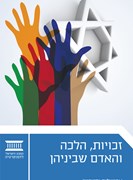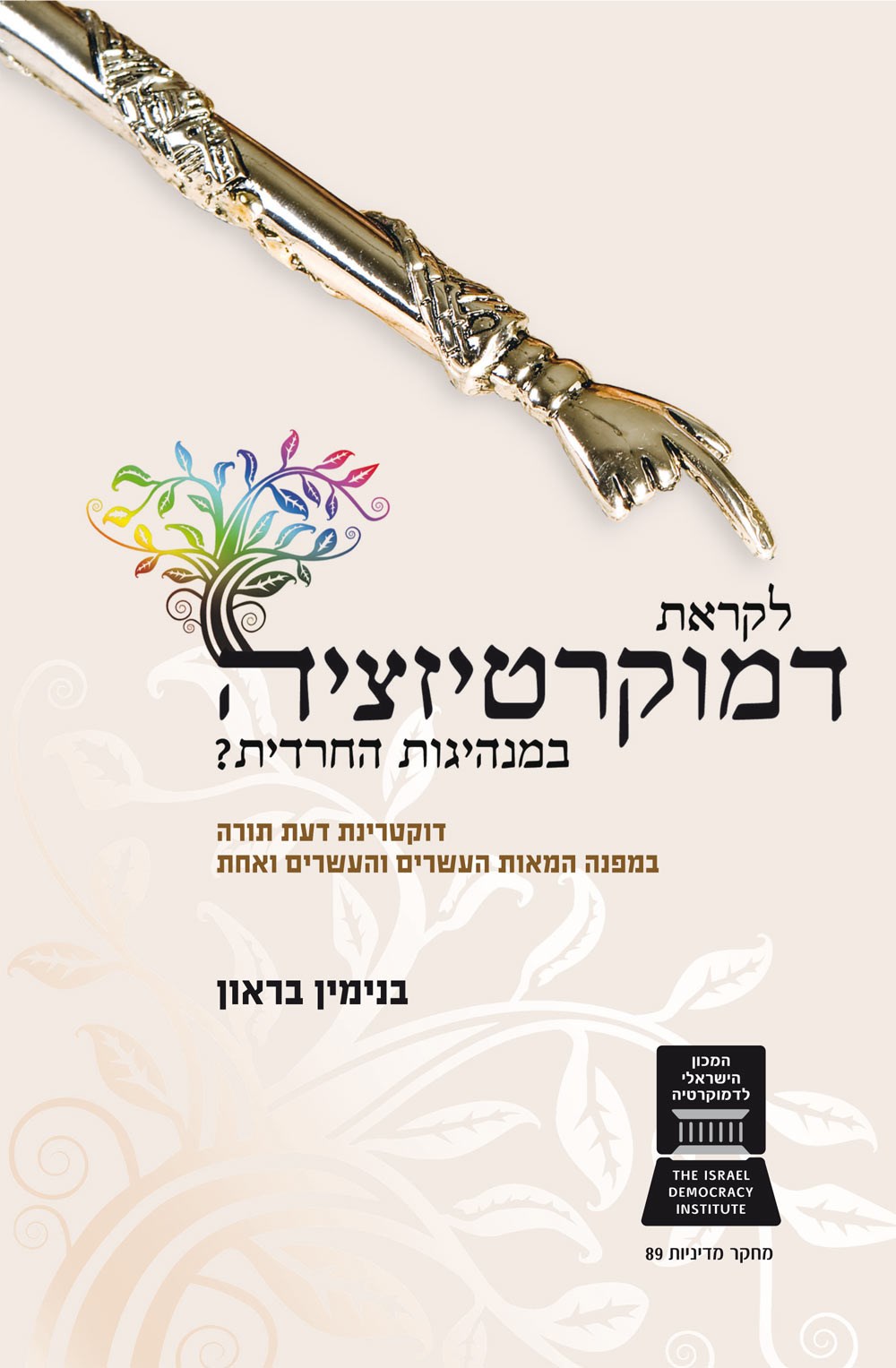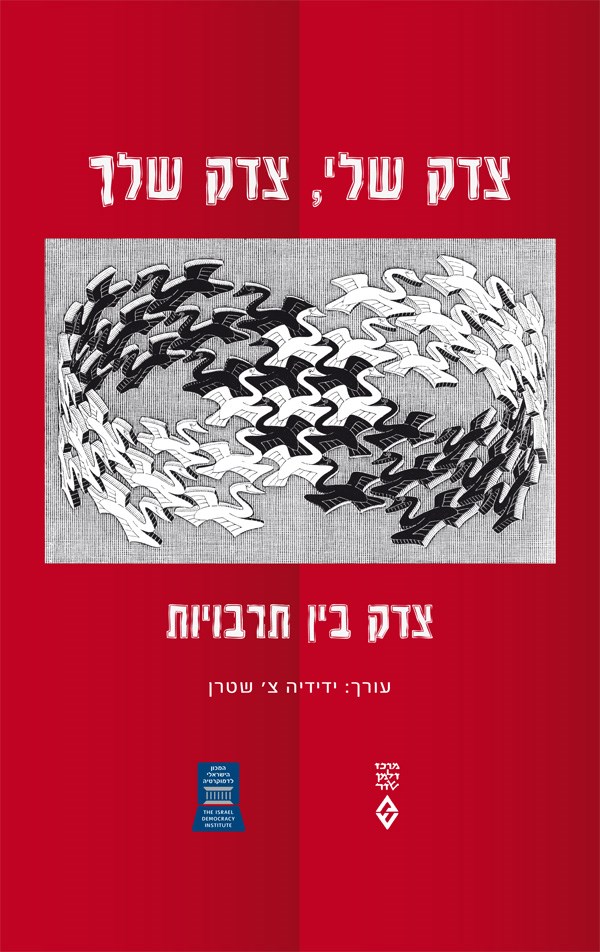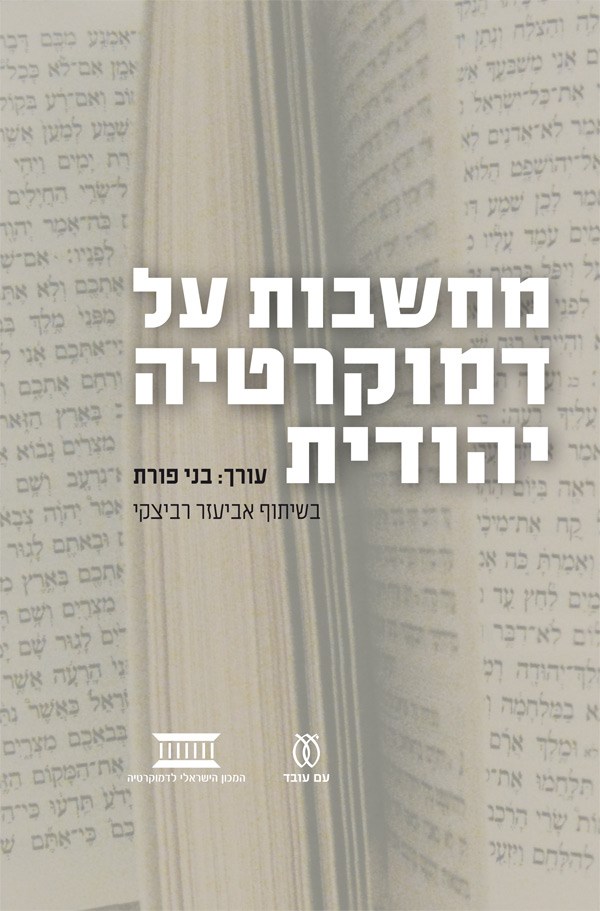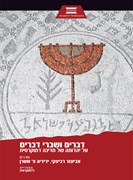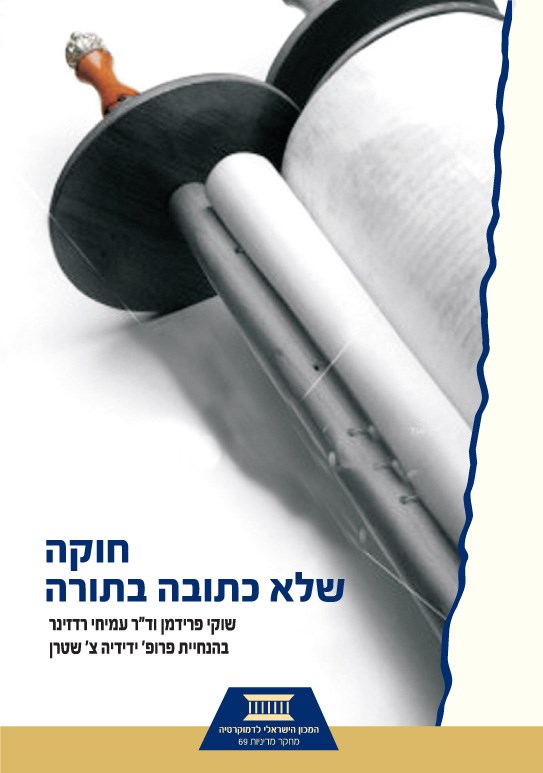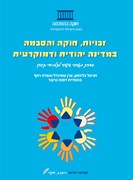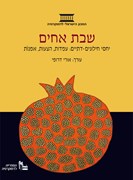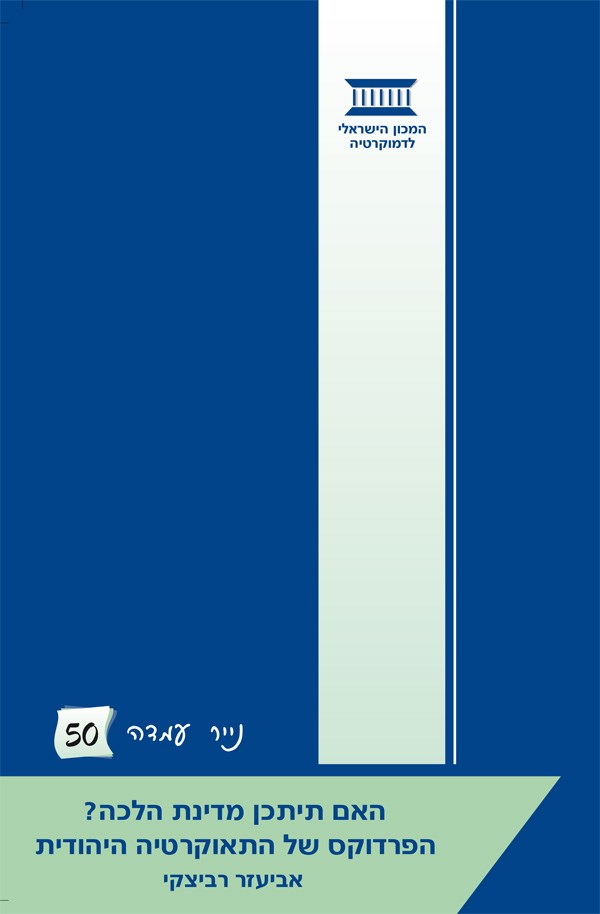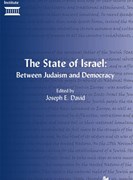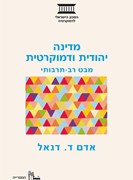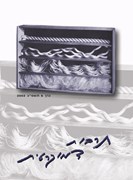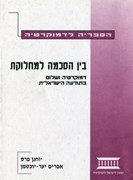

Publications Regarding Judaism and democracy
Articles

The Two Coalitions Israel Needs Now
Written By: Yohanan Plesner
It is increasingly clear that Israel’s future depends on the forging of two coalitions. One is a multinational alliance determined to turn the Palestinian issue from a driver of conflict into an engine of peace. The other, is an internal Israeli coalition ready to pursue a series of bold social, economic, and political reforms.
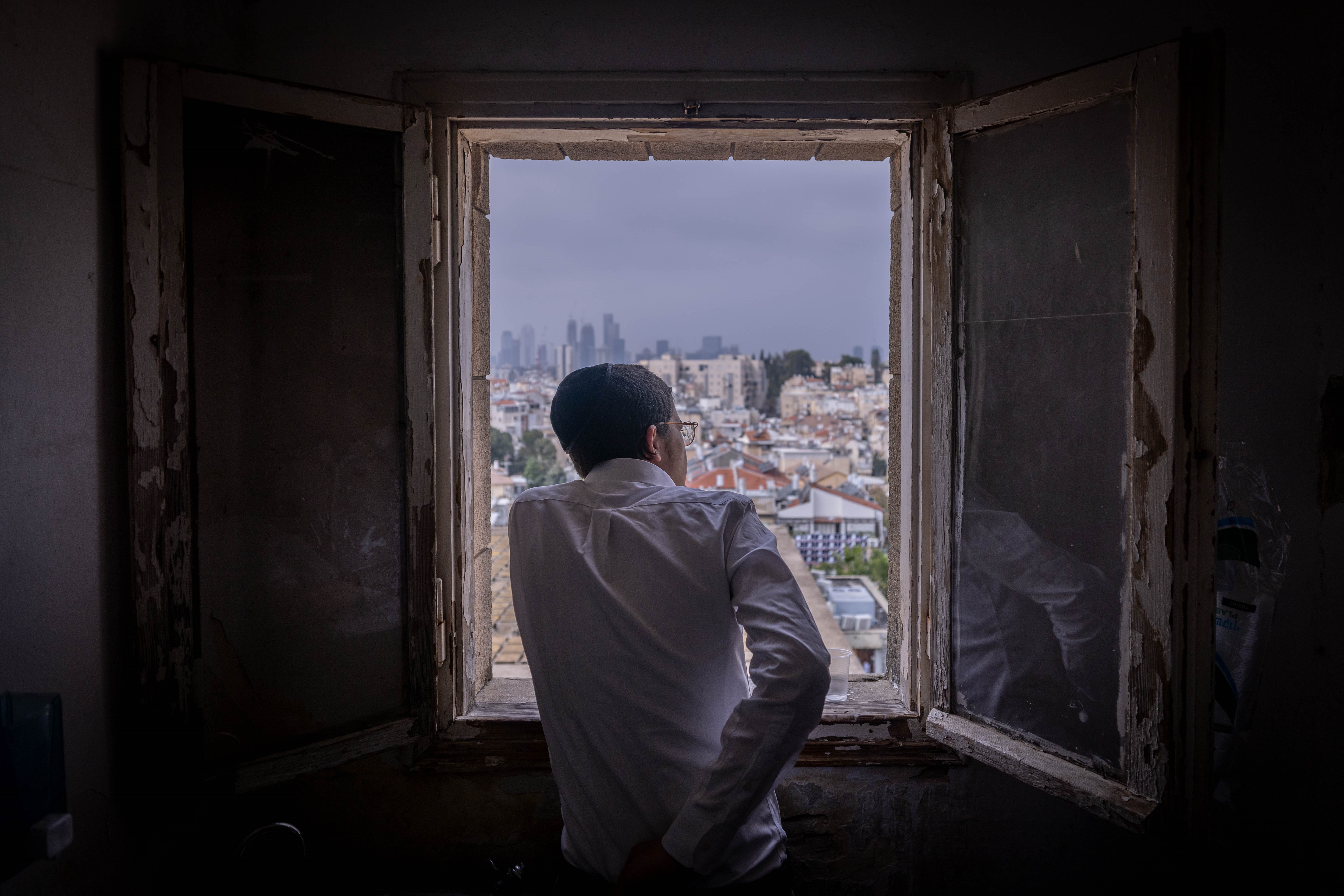
I, Too, Have Come to my Senses: It is Time to Rethink the Haredi Role in Israeli Society
Written By: Dr. Rivka Neriya Ben-Shahar
Dr. Rivka Neriya-Ben Shahar proposes a model that resembles the secular educational system of colleges and universities to identify the most gifted torah scholars, who would receive a generous stipend. Others must rethink their role as part of Israeli society.
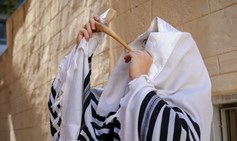
60% of Jewish Israelis Plan to Fast on Yom Kippur
With Yom Kippur (the Day of Attornment) upon us, our Guttman Center for Public Opinion and Policy Research checked how Israelis plan on marking the most solemn day in the Jewish calendar.
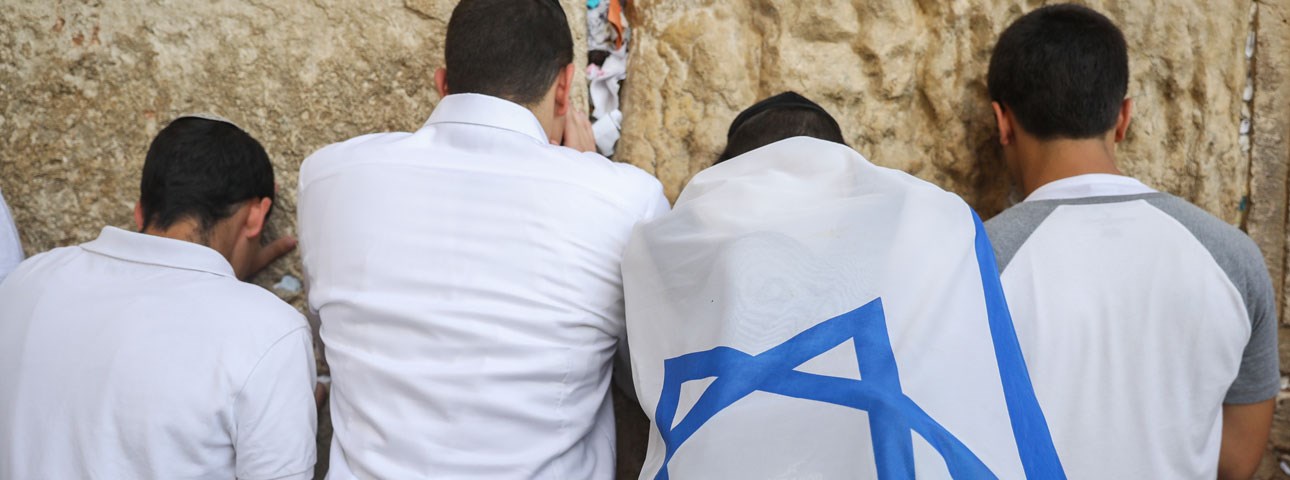
Jewish or Democratic? We Mustn’t Choose Between Them
Written By: Dr. Shuki Friedman
Recent elections have brought to fore the struggle between religion and state - the balance between the constitutional elecemtns and the place of religion. In this tug-of-war, a compromise can be the only victory.
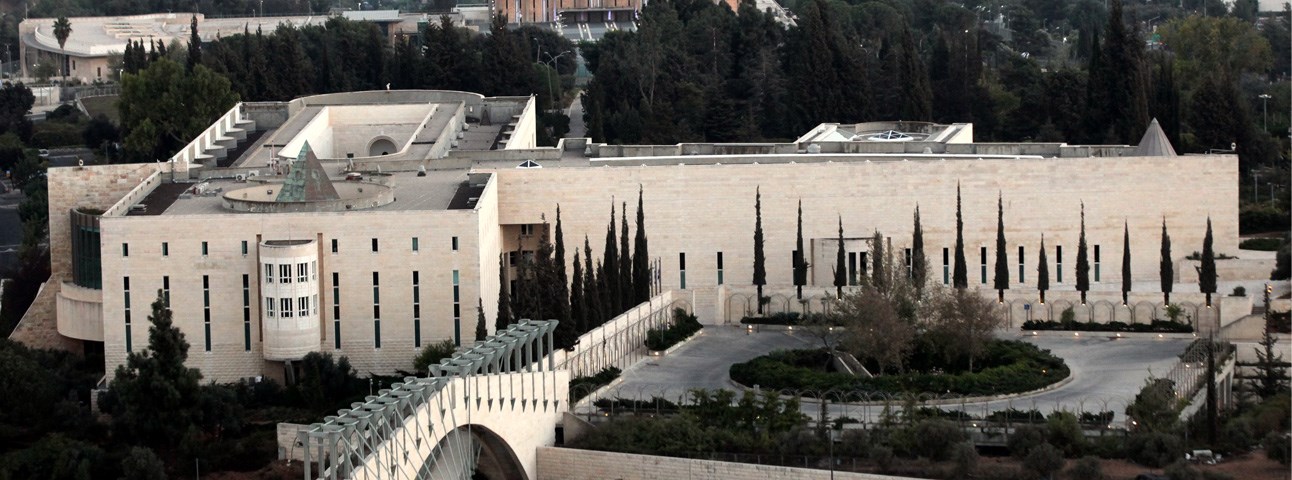
Supreme Court Decision of Combatants for Peace v. Minister of Defense
Written By: Dr. Idit Shafran Gittleman, Tamar Hostovsky Brandes
A controversial decision delivered by the Supreme Court on May 2 could be an important test case for its ability to withstand political attacks, which call to curb the court’s authority and power

The Democracy Pavilion
The Democracy Pavilion, a unique multi-media experience, in full 360 degree technology, showcasing the values embedded in Israel’s Declaration of Independence, will open to the public on Independence Day.

On This Day the World Stands on Trial
Written By: Yair Sheleg
Do we really believe that our fate for the coming year is determined on this day?
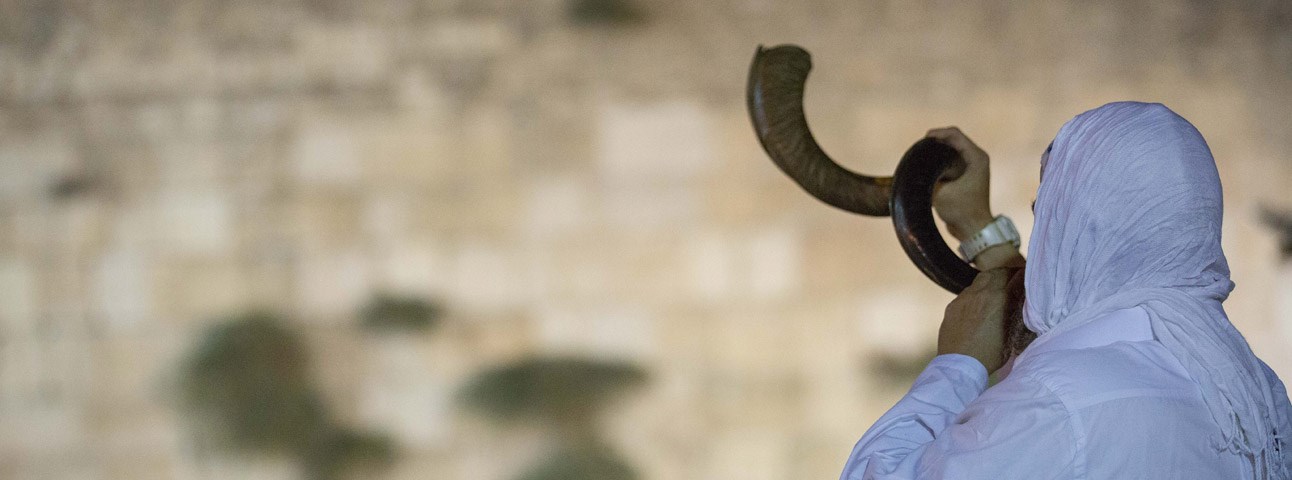
Rosh Hashanah: The Personal and the National
Written By: Prof. Yedidia Z. Stern
The Jewish calendar should guide our lives not only as individuals and a community, but also as a society and a state. If we want to preserve our identity as a distinct cultural and national group, we must make the effort to shape the cycle of time in our own way.
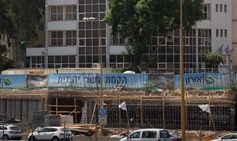
The Decision to Halt Work on the Sabbath on the Ayalon Bridge – a Farce
Written By: Dr. Shuki Friedman
- “The decision is questionable. If the government is really interested in avoiding desecration of the Sabbath, and in ensuring a day of rest, it should focus its energy on stopping the illegal work currently being performed on the Sabbath, which according to reports by the Ministry of Industry, Trade and Labor, is rarely done.

Strengthening Jewish Peoplehood In The Diaspora — But Not In Israel
Written By: Yohanan Plesner
In the bill’s final wording, the state only commits itself to act within the Diaspora to strengthen the ties of Jewish peoplehood – as if actions taken inside the Jewish state, like the reneged-upon Western Wall compromise, have no bearing on the rest of the Jewish world.
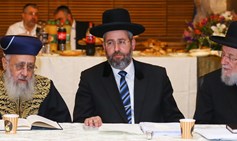
It is up to chief rabbis to preserve us as one people
Written By: Prof. Yedidia Z. Stern
On the practical side, religious conversion hasn’t ‘delivered the goods’ so far. Although it has been officially declared a national mission, less than 10 percent of non-Jewish immigrants and their offspring have completed the process. As a result, one in 20 non-Arab Israelis isn’t recognized as a Jew, despite having made aliyah under the Law of Return.
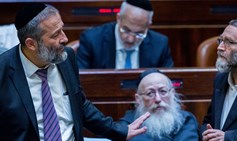
Time To Counter Charedi Parties On Jewish Character Of Israel
Written By: Dr. Shuki Friedman
No matter when they take place, the upcoming elections will have a decisive impact on the identity of the state if decision-makers and the general public continue to follow the ultra-Orthodox lead
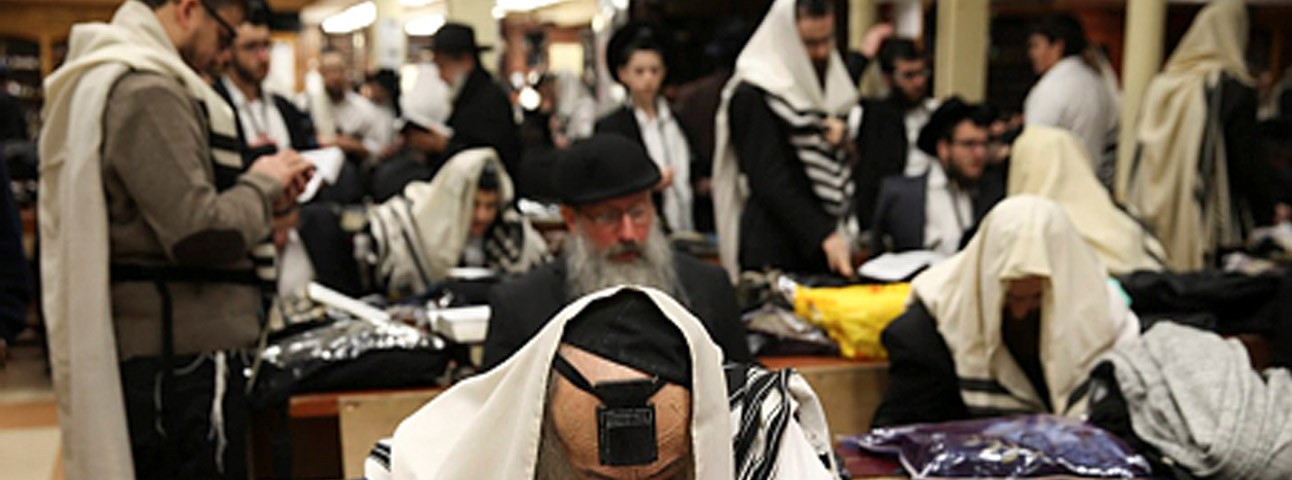
The Orthodox Are No Longer Repairing the World
Written By: Dr. Shuki Friedman
Rabbis outside the Reform and Conservative movements rarely deal with Jewish-values issues such as the asylum seekers and treatment of the Palestinians
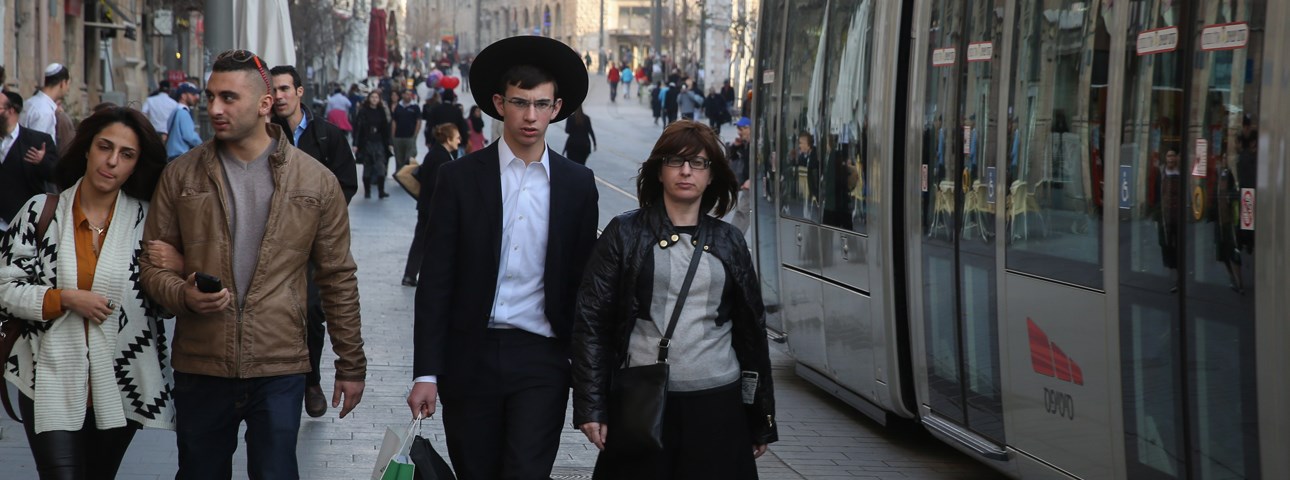
Who are the ultra-Orthodox?
Written By: Prof. Yedidia Z. Stern
Stereotypes—both positive and negative—are an obstacle to the development of a genuine partnership between the ultra-Orthodox and the rest of Israeli society. The Haredim are Israel's biggest sociological mystery. We must learn the facts rather than engaging in speculation.
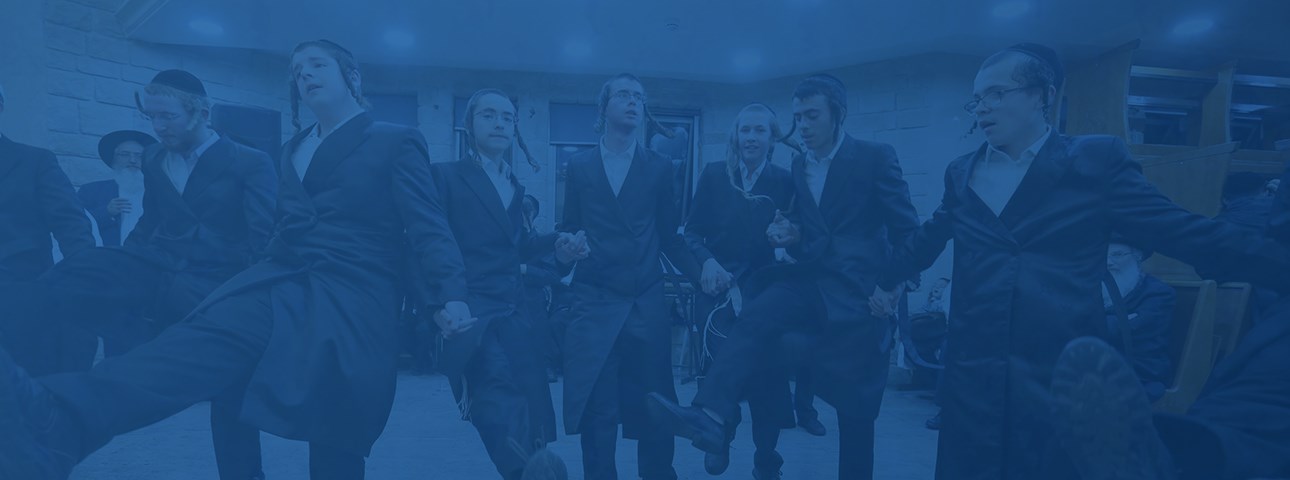
Statistical Report on Ultra-Orthodox Society in Israel
Written By: Dr. Lee Cahaner, Dr. Gilad Malach, Dr. Maya Choshen
Israel Democracy Institute and the Jerusalem Institute for Policy Research published today the 2017 Statistical Report on Ultra-Orthodox Society in Israel. The report presents trends in population, education, employment, and leisure in the ultra-Orthodox sector in Israel.

The Festival of Freedom and Responsibility
Written By: Prof. Yedidia Z. Stern
The truly great task is to push ourselves to be accountable, personally and nationally, to the question of purpose.
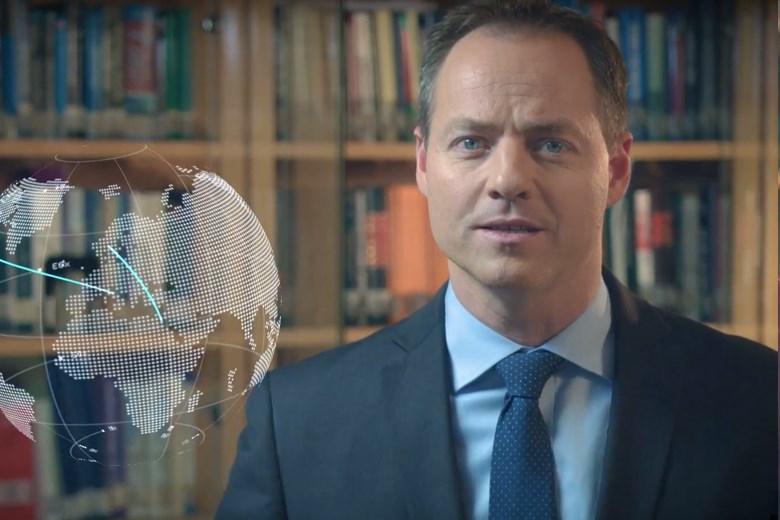
Ensuring a Vibrant Democracy
Written By: Yohanan Plesner

One Year Since the Passing of Rav Aharon Lichtenstein
Today marks the anniversary of the death of Rav Lichtenstein, a noted Orthodox rabbi, rosh yeshiva and authority in Jewish law. Rav Lichtenstein received the Israel Prize for Jewish Religious Literature for 2014.
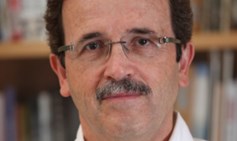
The Moral Imperative
Written By: Prof. Yedidia Z. Stern
In an op-ed first published by The Jerusalem Report, Prof. Yedidia Stern says this intifada of knives has left Israel in a twilight zone. It is not a time of war, in which the army is permitted to use arms more freely. But nor is it a time of peace in which any use of arms is seen as most irregular. Sharp differences of opinion between the public and the army could lead to a crisis in public confidence in the military high command. There is a crying need for responsible leadership.

Jewish, Democratic and Equal
Written By: Prof. Yedidia Z. Stern
There is a necessary condition that must be fulfilled for the existence of our nation-state to be justified: there must be an unconditional guarantee of civic equality for our national minorities. In this area, there is still much to be done.
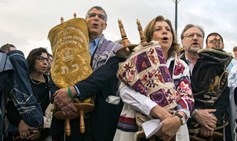
Jewish Unity at Stake: Israel Must Recognize and Fund All Sects of Judaism
Written By: Yohanan Plesner
Prime Minister Benjamin Netanyahu must charge forward and turn his words into action. Only then will he be able to guarantee his vision of Israel as “a source of unity for our people.” (This article was first published by JNS.org.)

Is There a Place for God in the Israeli Army?
Written By: Prof. Yedidia Z. Stern
In an article in the <em>Jewish Week</em>, IDI Vice President Yedidia Stern discusses the question of whether it is appropriate for commanders to use religious rhetoric in motivating their soldiers, and stresses the need for the Israeli army to represent all.

When November 4th Meets the 12th of Heshvan
Written By: Yitzhak Ben David
Rabbi Yitzhak Ben David shares thoughts on the alignment of the Memorial Day for Yitzhak Rabin on the Gregorian and Hebrew calendars, which challenges us to find a renewed reconciliation between Israeli democracy and Jewish civilization.

The IDF’s Fighting Ethos in the Wake of Operation Protective Edge
Written By: Yohanan Plesner
IDI President Yohanan Plesner stresses the need to ensure that the Israel Defense Forces remains at the heart of the Zionist consensus so as to enable it to continue to be the army of all citizens of Israel.

Shmita: Rest, Share, Release
Written By: Prof. Yedidia Z. Stern
An exploration of the existential, social, and economic dimensions of the Shmita year, that calls for bringing together social, moral, cultural, religious and national forces to implement the idea of Shmita in non-agricultural and national contexts in Israel.
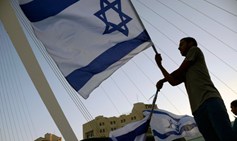
A Red Alert for Israeli Democracy
Written By: Yohanan Plesner
In the midst of Operation Protective Edge, IDI President Yohanan Plesner warns of the dangers of racism, incitement, and stifling of free speech and asserts that it is essential to internalize a substantive democratic culture.
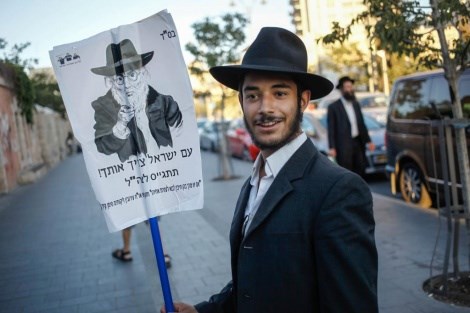
Ultra-Orthodox Integration: It Takes Two to Tango
Written By: Haim Zicherman
In an op-ed in Ynet News, IDI researcher Dr. Haim Zicherman discusses the steps that Israeli society must take in order to enable ultra-Orthodox men to integrate into the Israeli army and workforce.

Israeli Views of Diaspora Jewry 2014
Written By: Mr. Chanan Cohen, Ella Heller, Prof. Tamar Hermann
How do Jews in Israel see their connection with Jews in the Diaspora? In preparation for the first <a href="http://jms.org.il" target="_blank">Jewish Media Summit</a> (JMS), IDI's Guttman Center for Surveys conducted a survey of the attitudes of Israeli Jews toward Diaspora Jewry.

Shavuot in Israel: A Celebration of Torah or First Fruits?
Written By: Hizky Shoham
Dr. Hizky Shoham explores the multiple identities of the holiday of Shavuot, which began as an agricultural festival, was transformed into the "holiday of the giving of the Torah," and is most often commemorated as a celebration of Torah in today's Israel—by secular and observant Jews alike.
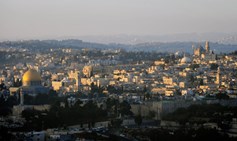
A Royal Sanctuary: Three Scenes for Jerusalem Day
Rabbi Dr. Benjamin (Benny) Lau presents three snapshots from different times and places, reflecting on a city that combines ancient and modern, sacred and secular, eternal truths and ordinary life.

My Jerusalem: Thoughts for Jerusalem Day
Written By: Prof. Mordechai Kremnitzer
IDI Vice President Prof. Mordechai Kremnitzer shares thoughts on Jerusalem, which symbolizes what is most beautiful and exalted in Jewish culture: the commitment to law and morality, to justice and mercy.
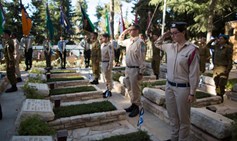
A Jewish State Warrants Our Sacrifice
Written By: Prof. Yedidia Z. Stern
IDI Vice President Prof. Yedidia Stern reflects on the privilege of sacrifice and the necessity to maintain a Jewish Israel in order to justify that sacrifice, in an article written for Remembrance Day for the Fallen of Israel's Wars and Victims of Terrorism.
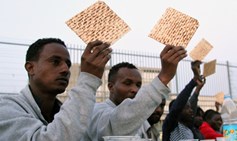
The Lessons of Passover: We are the Other
Written By: Prof. Yedidia Z. Stern
Prof. Yedidia Z. Stern asserts that if we see ourselves as "other" and identify with the stranger, the poor, and people with disabilities, historic redemption of our ancestors from Egypt will be an ongoing redemption for our generation.

Is "Israeli" a Nationality?
Written By: Jay Ruderman, Prof. Yedidia Z. Stern
Should the State of Israel recognize "Israeli" as a nationality? IDI Vice President Prof. Yedidia Stern and Jay Ruderman assert that it is imperative for the State of Israel to continue distinguishing between citizenship and nationality.

Non-Jews in a Jewish State: Searching for a New Paradigm
Written By: Kalman Neuman
In an article in The Jewish Week, Rabbi Dr. Kalman Neuman of IDI's Religion and State project examines some of the thorny questions of Jewish law when it comes to non-Jews in a Jewish state.

International Disabilities Day 2013: Human Rights and Judaism in Action
Written By: Benjamin (Benny) Lau
In honor of International Day for Persons with Disabilities, Rabbi Dr. Benjamin (Benny) Lau updates us on IDI's efforts on behalf of people with disabilities and reveals that people with guide dogs are now allowed to access the Western Wall.
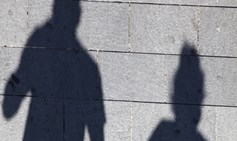
The Fate of a Mamzer
Written By: Gitit Paz
In an article in The Jewish Week, Gitit Paz, a young scholar in IDI's Human Rights and Judaism project, discusses the status of mamzer in Jewish law and in contemporary Israel.

The Israeli Democracy Index A Periodic Check-Up
Written By: Prof. Tamar Hermann
Each year, the Israel Democracy Institute checks the health of Israeli democracy by means of the annual Israeli Democracy Index. In an op-ed in Yedioth Ahronoth, Prof. Tamar Hermann discusses the 2013 Index, which was submitted to President Shimon Peres on October 6, 2013.

Blind to the Rights of the Disabled
Written By: Benjamin (Benny) Lau
In an article in The Jewish Week, Rabbi Dr. Benjamin (Benny) Lau calls on religious authorities who hold human rights dear to find a way to allow people with disabilities to have access to the Western Wall plaza.

The Israeli Democracy Index: A Periodic Check-Up
Written By: Prof. Tamar Hermann
Prof. Tamar Hermann, head of IDI's Guttman Center for Surveys, discusses the findings of the 2013 Israeli Democracy Index, which was submitted to President Shimon Peres on October 6, 2013.
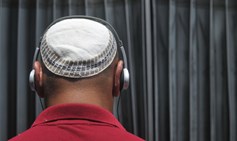
No to the Separation of Religion and State in Israel
Written By: Yair Sheleg
Should the American model of separation of church and state be applied to Israel? In an article in <em>The Jewish Week</em>, IDI's Yair Sheleg argues that Israel needs a unique model.

The High Holidays: A Personal and National Time
Written By: Prof. Yedidia Z. Stern
Prof. Yedidia Z. Stern shares thoughts on the Hebrew calendar, which contributes to Jewish unity and preserves the Jewish people as a single national and cultural unit.

The Jewish and Democratic State: Zionism is Not Racism
Written By: Dr. Amir Fuchs
In an op-ed in <em>Haaretz</em>, IDI researcher Attorney Amir Fuchs asserts that Israel is both the nation-state of the Jewish people and a democratic state, despite the confused Zionism of Mayor Shimon Gapso of Upper Nazareth.

The Jewish and Democratic State: Zionism is Not Racism
Written By: Dr. Amir Fuchs
In an op-ed in Haaretz, Attorney Amir Fuchs asserts that Israel is both the nation-state of the Jewish people and a democratic state, despite the confused Zionism of Mayor Shimon Gapso of Upper Nazareth.

An Anti-Zionist Law
Written By: Dr. Amir Fuchs
In an op-ed in Haaretz, IDI Researcher Attorney Amir Fuchs warns that the proposed Basic Law: Israel as the Nation State of the Jewish People is not only anti-democratic but also undermines the foundations of Zionism.
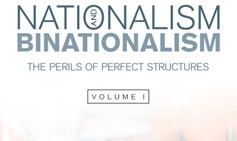
A Zionist State, a Binational State and an In-Between Jewish and Democratic State
Written By: Sammy Smooha
In this article, reprinted from Nationalism and Binationalism: The Perils of Perfect Structures, Prof. Sammy Smooha presents three models of Israel's national character, focusing on Israel's identity as a Jewish and democratic state.
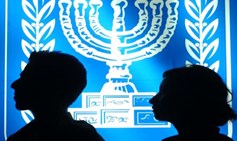
Israel Independence Day – For What Kind of State?
Written By: Prof. Yedidia Z. Stern
What kind of state are we celebrating when we commemorate Israel Independence Day? Prof. Yedidia Stern discusses the tension between the "Jewish" and "democratic" aspects of Israeli's identity and explores the attacks of the concept "Jewish state" by three fundamentalist camps: religious, ultra-nationalist, and liberal.
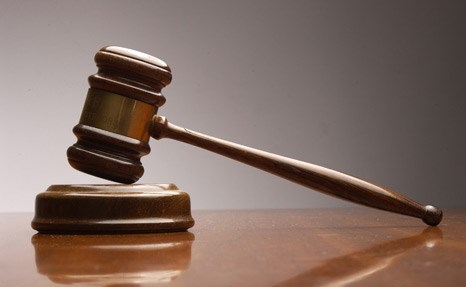
A Jewish and Undemocratic State?
Written By: Prof. Yedidia Z. Stern
The proposed "Basic Law: Israel – The Nation State of the Jewish People" has the support of one third of the members of Knesset. In this op-ed, which was originally published in Hebrew in Yedioth Ahronoth, IDI Vice President of Research Prof. Yedidia Z. Stern, who is deeply committed to the Jewish nature of the State of Israel, warns that the shift from defining Israel as a "Jewish and democratic state" to a "Jewish state with a democratic regime" is not a semantic shift, but a seismic change.

The Quality of Independence
Written By: Prof. Yedidia Z. Stern
In an op-ed from Yedioth Ahronoth written in honor of Israel's 63rd Independence Day, IDI Vice President of Research Yedidia Z. Stern reflects on the quality of Israeli independence, and asserts that a connection with the wellsprings of Jewish culture is necessary for maintaining the quality of the independence that Israel holds so dear.

The "Rabbis' Letter" and Halakhah
Written By: Dr. Eliezer Hadad
The "Rabbis' Letter" signed by dozens of community rabbis in Israel in December 2010 asserts that Jewish law forbids the rental and sale of homes in Israel to non-Jews. Is renting property to non-Jews indeed forbidden by Jewish law? IDI Researcher Dr. Eliezer Hadad surveys opinions by contemporary rabbis who adopted a universalistic approach and found a halakhic basis for the equal rights mandated by both international norms and the Israeli Declaration of Independence.

Religion and State: Is Israel Different than any Other Country on this Matter?
Written By: Yair Sheleg
Yair Sheleg investigates whether the separation of religion and state manifests itself differently in Israel than it does in other countries.

Ultra-Orthodox in the IDF: A Ticking Time Bomb
Written By: Prof. Yedidia Z. Stern
To encourage enlistment, Israel should adopt a conscription model that is cognizant of the ultra-Orthodox fear of erosion of their identity and employs both positive and negative economic incentives.


